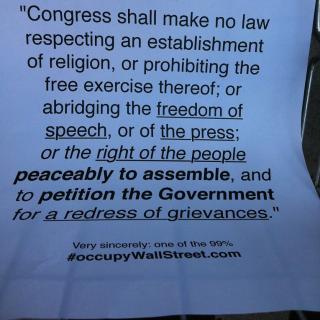Ohio Governor Mike DeWine captured the national spotlight in early March when he issued bold directives that moved the state to the forefront of battling the COVID-19 pandemic. DeWine pushed for Ohioʼs spring primary election to be postponed and changed to mail-in ballots. He banned mass gatherings and ordered the closure of schools, theaters, gyms, bowling alleys, bars, and restaurants.
To safeguard the public from coronavirus, DeWineʼs original plan was to wait for a downward trend in COVID-19 infections, hospitalizations, and deaths before lifting shelter-in-place orders. But after getting pressure from right-wing protesters and state legislators in his own Republican Party, DeWineʼs standard for public safety has shifted. Now he is permitting businesses to reopen after a three-week plateau during which COVID cases have not significantly increased or declined.
On May 12 DeWine permitted non-essential retail businesses to open. On May 15 hair salons opened on a limited basis and restaurants reopened for patio dining. Inside dining will be permitted on May 21. Polling indicates that most Ohioans oppose reopening these sections of the economy.
The nature of the hospitality industry makes bartenders and wait staff especially vulnerable to coronavirus. Hospitality workers in the Short North Arts District in Columbus have organized to fight the premature reopening of restaurants and bars.
“We have a big long bar and one row of tables,” said A.D., a bartender and member of the Short North Hospitality Worker Association. “Practically speaking, we donʼt have the space to implement any sort of physical distancing.”
A.D. also objects to the state leaving it up to businesses to decide whether customers will wear masks. “Employees have to wear masks, but customers donʼt,” he said. “It makes us expendable for the benefit of the customer. Yeah, weʼre in the hospitality industry, and thereʼs always a level of that. But this is crossing a serious line.”
Hospitality workers often have to deal with customers who are intoxicated or feel entitled, A.D. said — situations that can be impossible to manage while maintaining social distance.
As the economy reopened, the Ohio Department of Job and Family Services asked employers to report employees who refused to return to work due to safety concerns on a “COVID-19 Employee Fraud” web form. The onus would be on workers — many of whom donʼt have access to direct evidence or legal advice — to prove that their employers are not following safety protocols. Workers who are reported could lose state unemployment benefits and $600 a week in Pandemic Unemployment Assistance provided by federal stimulus legislation.
A hack of the fraud form forced state officials to take it down as they reconsider the policy.
Jackie, another member of the Short North Hospitality Worker Association, would not feel safe returning to any of her three hospitality jobs. “Even if customers are wearing masks, they have to take them off to drink and eat,” she said. “Weʼre also touching each and every glass and plate. Itʼs totally unfair to make workers choose their well being over a paycheck. The motivations behind opening up are economically driven exclusively.”
Jackie expects sales — and therefore tips — to be greatly reduced in bars and restaurants with social distancing being enforced. “I wouldnʼt be making even half the money that I used to. It's less pay and more risk. We could be coerced into going back to jobs where the quality has diminished significantly from the jobs we signed on for.”
On May 15 hospitality workers organized a car and bicycle rally in the Short North to protest the opening of restaurant and bar patios. To discourage customers from patronizing the businesses, they drove and biked very slowly through the Short North to disrupt traffic flow.
Reopening of the patios was a disaster. Most customers ignored social distancing protocols and hardly any wore masks. The crowd outside the Standard Hall bar prompted multiple calls to Columbus police and the health department to report social distancing violations.
A Columbus Dispatch article about Standard Hall was “only sympathetic to the owners of the bar in question and didnʼt bother to talk to hospitality workers or see why people were protesting from their cars,” said Jordan Mitchell, one of the organizers of the protest.
Another car and bike protest is planned for May 22, after Short North establishments are open for inside dining.
The motivation for reopening the economy prematurely is partly political. The anti-quarantine protests in April were driven by a network of right-wing individuals and groups who donʼt want a continuation of the economic downturn to jeopardize President Trumpʼs reelection.
The other motivation is economic. The billionaires, corporate executives, and politicians who constitute the U.S. ruling class know that pumping trillions of stimulus dollars into the economy — some of which has been used to replace the paychecks of front-line working people during the pandemic — is not a sustainable solution. Stimulus spending is expected to bring the federal deficit to at least $3.7 trillion for the fiscal year, adding to a national debt already bloated by President Trumpʼs 2017 sweeping tax cuts for corporations and the richest 1 percent.
The cost of the COVID-19 pandemic has to be paid for somehow. There is only one realistic and fair way to do this: reverse the 2017 tax cuts and actually raise corporate taxes, especially for companies such as Amazon who have profited from the pandemic.
But the American ruling class doesn՚t want to pay for a crisis that they created. They want working people to pay for it with their lives.




